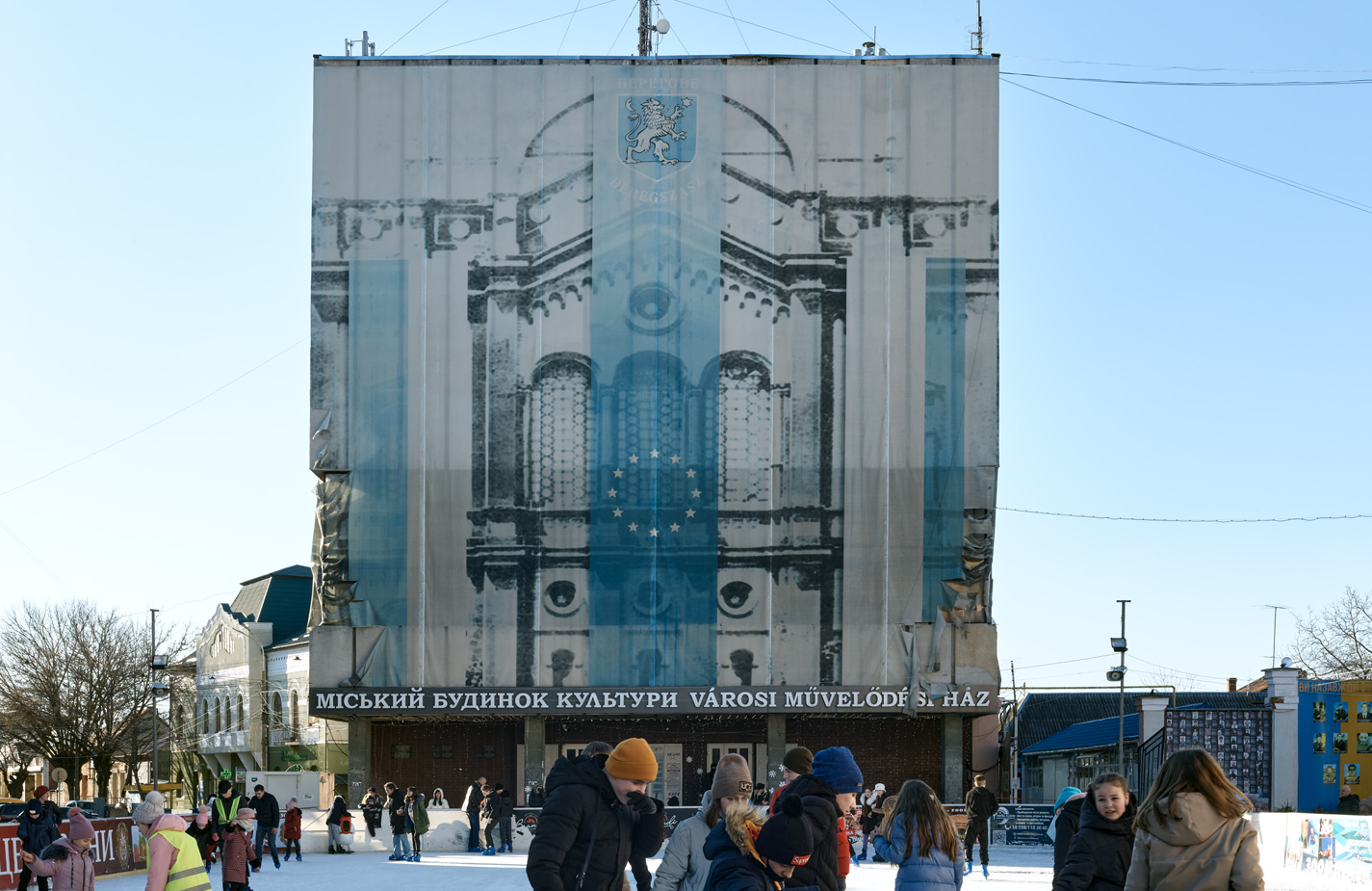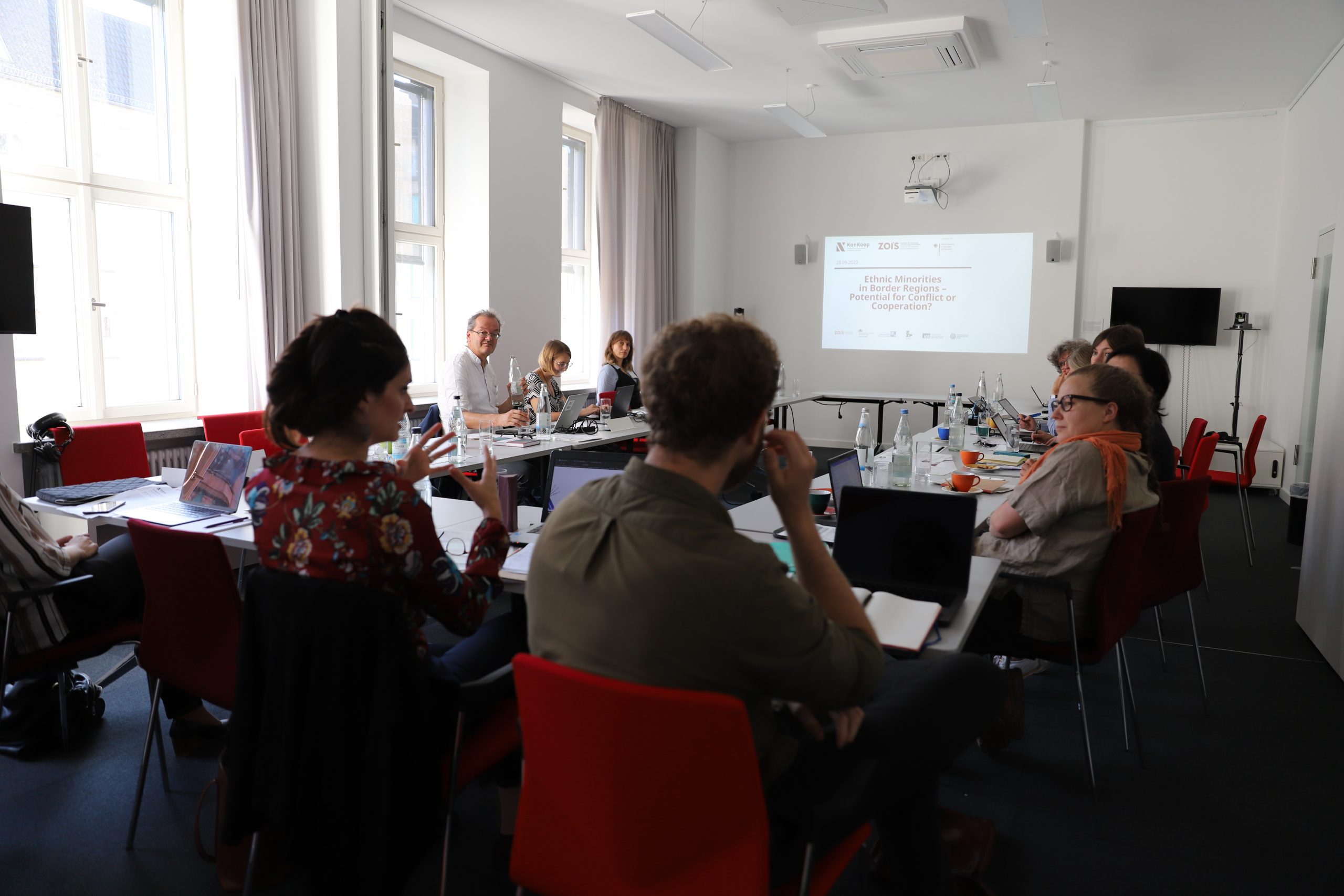
- This event has passed.
WORKSHOP: Ethnic Minorities in Border Regions – Potential for Conflict or Cooperation?
September 28, 2023 @ 9:00 am - September 29, 2023 @ 6:00 pm UTC+1

Foto: Berehove, Ukraine, 2022 © Volker Kreidler
Organisation: Beate Eschment and Sabine von Löwis (ZOiS); Ekaterina Mikhailova (IOS)
Ethnic minorities can quickly become a focal point of politics and political elites that generates conflict. Equally, they can be a trigger for cooperation. Their social, political and economic position plays an important role in conflictual and cooperative dynamics not only within states but also in interstate relations. This is especially true in the case of Eastern Europe, where there is great ethnic diversity and borders have frequently been redrawn in recent decades. The dissolution of the Soviet Union had two effects where borders are concerned: while international and generally more closed borders were established between the former Union republics, the sometimes hermetically sealed external borders of the former Soviet Union often became more permeable. Changes in the geopolitical order due to the eastward expansion of the EU and the Schengen area, the Russian war against Ukraine and the emergence of regional powers – and thus changes in international relations – are reflected in the permeability of borders as well as in the treatment of minorities in border regions and their relations with each other.
The workshop we are planning deals with ethnic groups/nationalities that are indigenous to both sides of the former Soviet external borders. It asks how the dynamics of opening and closing this borders in different regions before and after the end of the Cold War have affected and are still affecting the possibilities of contact between them. We also want to discuss how the states/governments in question dealt/are dealing with this situation. As well as looking at more recent changes and events in border regions, we also consider past relations and dynamics across the external borders of the Soviet Union with Eastern Europe as well as in the Caucasus, Central Asia and the Far East.
Contributions will focus, for example, on national identities, economic, cultural or religious contacts, and on how the governments of the states in question have reacted to the respective groups. Particular attention should be paid to the following questions:
- How are the ethnic minorities in question perceived and treated by the government/mainstream society (e.g. accusations of disloyalty)?
- How do governments and societies act on the other side of the border, where their ethnic group is in the majority (territorial claims, instrumentalisation, support, citizenship, etc.)?
- What consequences did the division by a border have on cohesion, national identity, language development and distinctive cultural practices? Were there/are there movements to reunite
- What role do cross-border ethnic groups play for the stability of the two states concerned, and for the region where they live?
- What role do the minorities play in the respective states? What rights do they have and what is their relationship to the mainstream society? How does this affect cross-border relations at regional and national level?
- Where do local/regional cross-border relations and initiatives stand in relation to the policies and strategies of the respective governments?
- What relations do minorities in border regions cultivate with people and institutions on the other side of the border? How do they perceive each other?
- How do the (post)Soviet cases compare with global and historical cases?
As the questions suggest, the focus will be on the individual and local relations of the respective ethnic groups as well as on relations between the respective neighbouring states.
Programme
9.30 – 9.45 Welcome and Introduction
With: Beate Eschment, Sabine v. Löwis (ZOiS); Ekaterina Mikhailova (IOS)
9.45 – 11.45 Panel: Cross Border (Minority) Identities
Mélanie Sadozaï (Washington, Paris): Unraveling a minority identity at the margins of the State: the case of Ismaili Pamiris at the border between Tajikistan and Afghanistan in Badakhshan
Rezzan Alagöz (Adiyaman, Turkey): Identity Boundaries on Both Sides of the Armenian-Turkish Border
Ágnes Erőss, Katalin Kovály, Patrik Tátrai (Budapest, Hungary): War induced ethnic dynamics in the Ukrainian-Hungarian border region
Chair and Comment: Beate Eschment (ZOiS)
11.45 – 13.00 Lunch
13.00 – 14.30 Panel: Diaspora, Minorities and Border Regions
Tobias Marschall (Geneva, Switzerland): Seeking Sovereign Agency in Movement: Afghan Kyrgyz at the End of Eastern Afghanistan
Karolina Radłowska (University of Białystok, Poland): Polish Tatars on the Eastern Borderland of Poland
Chair and Comment: Tsypylma Darieva (ZOiS)
14.30 – 15.00 pm Coffee Break
15.00 – 17.00 Panel: Dis/Connected (Border) Minorities
Aileen A. Espíritu (Tromsø, Norway): Lost connections: cross-border relations among indigenous Sami in the midst of Russia’s war in Ukraine
Kapitolina Fedorova (Tallin, Estonia): Buryats as a cross-border community and as intercultural mediators in Zabaykalsky Krai and Inner Mongolia
Ansgar Jödicke (Freiburg, Switzerland): The Border Between Iran and Azerbaijan Through the Lens of National and Religious Policies
Chair and Comment: Sabine v. Löwis (ZOiS)
17.00 – 17.30 Concluding Remarks and Outlook
With: Beate Eschment, Sabine v. Löwis (ZOiS); Ekaterina Mikhailova (IOS)
17.30–18.00 Coffee Break
18.00 Key Note: Accommodating Ethnic Minorities in Border Regions. Lessons from the Danish-German Border for Eastern Europe? – Martin Klatt (Flensburg, Germany/ South Denmark)
Chair: Ekaterina Mikhailova (IOS)
(c) ZOiS
